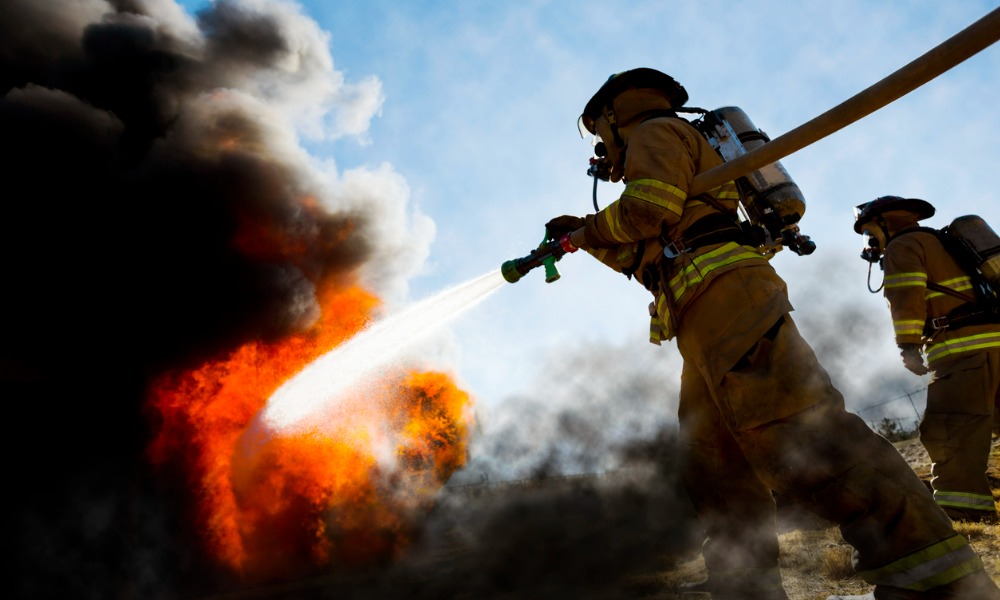
Province boosts coverage for forest firefighters, lowers requirements for primary-site skin cancer

Ontario's forest firefighters will soon have the same presumptive Workplace Safety and Insurance Board (WSIB) coverage that urban firefighters do.
The provincial government will introduce changes to the Workplace Safety and Insurance Act (WSIA) to ensure that firefighters who have been at least 10 years in service will be entitled to presumptive coverage for primary-site skin cancer. The change would pull the required number of years down from the current requirement of 15 years.
There is growing scientific evidence showing that firefighters, including wildland firefighters, are at an increased risk of developing skin cancer because of their exposure to carcinogens and polycyclic aromatic hydrocarbons (PAHs) found in fireground dust, said the government.
“In every corner of our province, firefighters, fire investigators, and volunteers put their lives on the line to keep our families and communities safe. These frontline heroes deserve a government that values their service and sacrifice – they have earned stronger, more expansive coverage,” said David Piccini, minister of labour, immigration, training and skills development.
“Our government is serving those who serve by expanding cancer coverage and ensuring wildland firefighters have the same health coverages that municipal firefighters do.”
In June 2023, Ontario also expanded presumptive occupational cancer coverage for firefighters and fire investigators to include primary site thyroid and pancreatic cancers. The Working for Workers Four Act, 2024 lowered the required employment period for primary-site esophageal cancer from 25 to 15 years, as well as “super indexing” WSIB benefits above the annual rate of inflation so sick heroes can focus on their health – not struggling with the cost of living.
The Ontario Professional Firefighters Association (OPFFA) welcomed the enhanced primary-site skin cancer coverage for firefighters in Ontario.
Firefighters have a 21% higher risk of melanoma, the deadliest form of skin cancer, even though it represents only one per cent of all skin cancers, said Greg Horton, president of OPFFA, citing studies.
“They also have a higher risk of other types of skin cancers. The current latency period is 15 years,” he said.
“In Ontario, firefighters are developing serious melanomas earlier, making them ineligible for compensation under the current system. We thank Ontario’s government for recognizing that the legislation requires updating and amending the latency period to 10 years thus ensuring fairer treatment for firefighters and their families who face health issues due to their service. We applaud the government for expanding the coverage to include wildland firefighters who also are at risk due to their occupation."
However, the Ontario Public Service Employees Union (OPSEU/SEFPO) said there is still more work to do. The union noted that while Ontario provides a one-time retention bonus of $5,000 for firefighters, “turnover is high because people are not adequately compensated for the dangerous nature of the job.” And this trend “puts workers who choose to return at higher risk,” according to the union.
Approximately five million workers and 325,000 employers are covered by the Ontario WSIB, noted the provincial government.
Over 1,000 people worked as wildland fire and wildland fire investigators during the 2023 wildland fire season, and there were 741 wildland fires in the province during the 2023 season that burned 440,000 hectares.
British Columbia, Nova Scotia, Alberta and Saskatchewan also enhanced cancer coverage for firefighters in the past couple of years.
Ontario is expanding coverage for occupational cancer, heart injuries and post-traumatic stress disorder (PTSD) to help safeguard the health and safety of firefighters, the provincial government noted.